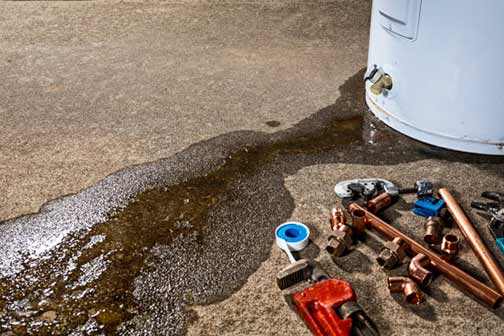
Is your water heater acting up, and you don’t know what’s wrong with it? Perhaps you should call an expert? Not a bad idea. But before doing that, why not check out our list of water heater troubleshooting tips below? Maybe you can figure out the problem.
Preamble: Safety is PARAMOUNT
When working with a water heater, ensure your safety by turning it off, says EPM Elite company. To do this, go to the circuit breaker box and find the breaker labeled “Hot Water Heater,” “HWT,” or “Tank.” Flip it to the “Off” position.
To make sure the power is indeed off, test the wires in the water heater with a non-contact voltage tester. If it lights up, the water heater is not off. DO NOT CONTINUE. If the stick doesn’t light up, it is safe to proceed.
For gas water heaters, if you smell gas, vacate your home at once and call the gas company. Do not light flames or use electrical devices that can cause a fire outbreak.
No hot water
If your electric water heater is not heating water at all, check if the circuit breaker has tripped. If the breaker is ON but the appliance is not working, the heating element may be bad – call a plumber. If the beaker has tripped, return it to the ON position. If it trips again, there is a problem with your home’s wiring. However, if the water heater starts to work, your problem is solved.
If it’s a gas water heater, check if the pilot flame is blue with no hints of yellow. If the flame is yellow or you have difficulty lighting it, please call an expert. There is also a chance that the gas line may be frozen. The way to fix this is to thaw the line. If the pilot flame is on and the gas line is not frozen, yet the water heater is not working, please get a professional to check the water heater.
Inadequate hot water
If your water heater delivers hot water in insufficient quantities, one or more heating elements may have failed, probably a lower heating element. A bad heating element is not a problem you can solve yourself. Have a professional Western Springs, IL plumber check the water heater to determine the cause and extent of the problem and avoid a premature water heater replacement.
On the other hand, if the water volume from your water heater is normal but the water is tepid, you could have a lot of sediment inside the tank. To fix this problem, flush the tank to remove the sediment. If the problem persists even after you do this, get a plumber to check the water heater.
Water is too hot or cold
A broken thermostat or incorrect thermostat settings will cause your water heater to deliver water that is either too hot or too cold. The normal factory temperature setting for a water heater is 120 degrees Fahrenheit. If you don’t like this setting because the water from the appliance is too cold, set the thermostat to 140 degrees and wait one hour to test the water temperature again. If the water is too hot, turn the thermostat setting lower and test after one hour to see if the temperature has changed. If none of these steps solve the problem, the thermostat may be broken, and you will need to contact a professional.
Water is smelly or discolored
Corrosion inside the water heater tank will give the water a brown, yellow, or reddish color. If the water smells like rotten eggs, you may have bacteria inside the tank. To fix internal corrosion inside the tank, flush the water heater tank and replace the anode rod that is in the center of the tank.
To deal with foul-smelling water from your water heater, first run some cold water to see if it has the same smell. If only the water from the tank has this smell, you will need to flush the water heater tank. This should eliminate the bacteria that have been inside the tank for a long time.
The water heater is leaking
Possible causes of a leaky water heater include: failed/incorrectly installed TPR valve, excessive sediment buildup that has caused the tank to leak, loose drain valve, old anode rod that no longer protects the tanks from corrosion, loose inlet/outlet connections, a thermal expansion tank that is missing or too small.
To find the exact cause of the problem, work your way through the items on this list. Eliminating each potential cause will let you narrow the range of potential causes until you find the actual problem. If this feels like too much work, remember that you can always call a professional plumber.
Finally, remember that the above tips do not make you an expert. For your safety and to protect your wallet, it is essential to know where your DIY skills end and when to call a professional. Hiring the right professional is not a cost but an investment that can help you to save money.
—
In need of some help with your water heater in the Western Springs, IL area? We can help! Contact us today at 708-801-6530 or by form below:

